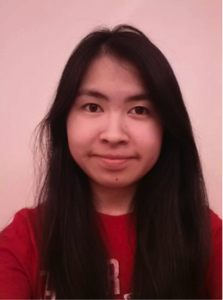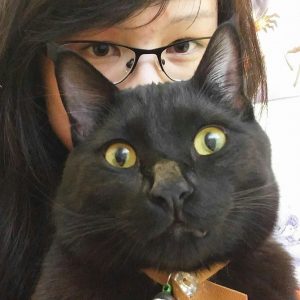And Now The Sun Rises
“I fell in love with the neighbourhood,” Miller says. “It’s multicultural. It’s an eclectic neighbourhood, and that’s why I like it. It’s so vibrant and energetic. It felt like something was happening.”
This quote about Hastings-Sunrise was said by the owner of Red Wagon Restaurant whose “business exceeded all expectations” in the once run down East Hastings Street (Georgia Straight, 2014). Over the years, this community has changed with many shops opening up and attracting more people, both tourists and residents of the Lower Mainland. Although it may be reviving into a vibrant, bustling neighbourhood, how can we connect this growing community and build strength against increasing food insecurity as Vancouver’s economy changes?
Our Community Partner
Hastings Sunrise Community Food Network (HSCFN) is a non-profit organization aimed at improving and supporting food access to the Hastings Sunrise community (HSCFN, 2015). By building on the community’s foundation, HSCFN aspires to help the Hastings Sunrise food system become more self-reliant and sustainable (HSCFN, 2015). Moreover, their role is to contribute ideas and programs as well as to add onto existing initiatives in the community (HSCFN, 2015). The network consists of five agencies – Hastings Community Centre, Frog Hollow Neighborhood House, Kiwassa Neighborhood House, Thunderbird Community Centre, and City Reach (HSCFN, 2015).
Project Objectives
- Help agencies facilitate food literacy workshops in the Hasting Sunrise community.
- Help support Hastings Sunrise Community Food Network in their mission of connecting community members towards access of healthy, affordable food
Who Are The Students Involved?
This project includes 6 students from the University of British Columbia, under the Faculty of Land and Food Systems. They are all currently enrolled in the LFS 350 course, which allowed them to take part in this project.
 Sylvie Chen is a Nutritional Science major student. She is interested in exploring various food cultures among different countries. Understanding various food habits in different regions is an efficient way to understand their culture, including religions. Also, she wants to approach the knowledge about healthy diets during her undergraduate study and be able to apply it to daily life to improve her and her family members health consciousness. She thinks the Hastings-Sunrise project is an excellent chance to apply the theoretical knowledge on actual practice through helping low-income community members to understand their foods and use them correctly.
Sylvie Chen is a Nutritional Science major student. She is interested in exploring various food cultures among different countries. Understanding various food habits in different regions is an efficient way to understand their culture, including religions. Also, she wants to approach the knowledge about healthy diets during her undergraduate study and be able to apply it to daily life to improve her and her family members health consciousness. She thinks the Hastings-Sunrise project is an excellent chance to apply the theoretical knowledge on actual practice through helping low-income community members to understand their foods and use them correctly.
 Eunice Wang is a third year undergraduate in the Food, Nutrition and Health program, specializing in Nutritional Sciences that mainly focuses on the nutritional aspect of foods and scientific scale of food systems. She has a great interest on how healthy foods can improve people’s health and living conditions. She is very excited to study how social factors, such as income level and cultures have impact on how people eat foods in healthy and nutritional ways. Travelling around the world is one of her favourite interests because she can have a chance to taste different styles of foods and get to know local healthy diets. She cherishes the opportunity of accomplishing this project since she can study what it is that prevents people from having healthy nutritional diets and foods.
Eunice Wang is a third year undergraduate in the Food, Nutrition and Health program, specializing in Nutritional Sciences that mainly focuses on the nutritional aspect of foods and scientific scale of food systems. She has a great interest on how healthy foods can improve people’s health and living conditions. She is very excited to study how social factors, such as income level and cultures have impact on how people eat foods in healthy and nutritional ways. Travelling around the world is one of her favourite interests because she can have a chance to taste different styles of foods and get to know local healthy diets. She cherishes the opportunity of accomplishing this project since she can study what it is that prevents people from having healthy nutritional diets and foods.
 Valerie Kam, is a third year Nutritional Science major student. After taking several nutrition courses, she enjoys studying human international nutrition the most, especially when it pertains to malnutrition in children. This particular project piqued her interest, as it mirrored a project she participated in another course prior. With both of the projects centralizing their topic on food literacy, she is excited to see how different it will be to conduct food literacy workshops with a different audience and community this term.
Valerie Kam, is a third year Nutritional Science major student. After taking several nutrition courses, she enjoys studying human international nutrition the most, especially when it pertains to malnutrition in children. This particular project piqued her interest, as it mirrored a project she participated in another course prior. With both of the projects centralizing their topic on food literacy, she is excited to see how different it will be to conduct food literacy workshops with a different audience and community this term.
 Melissa Gee is a fourth year student majoring in Applied Animal Biology. She is interested in studying animals, but is especially fond of birds. However, to study an organism, one must also look at their interactions with others and the environment, which includes the effects of agriculture. Moreover, eating is an activity that everyone shares and an activity that is a major part of our lives. As a result, people should think more critically of their food choices since they have varying degrees of impact on the environment. The Hastings-Sunrise project incorporates the concept of food rescue to not only optimize food utilization, but to also minimize food waste, which is an idea she is interested in.
Melissa Gee is a fourth year student majoring in Applied Animal Biology. She is interested in studying animals, but is especially fond of birds. However, to study an organism, one must also look at their interactions with others and the environment, which includes the effects of agriculture. Moreover, eating is an activity that everyone shares and an activity that is a major part of our lives. As a result, people should think more critically of their food choices since they have varying degrees of impact on the environment. The Hastings-Sunrise project incorporates the concept of food rescue to not only optimize food utilization, but to also minimize food waste, which is an idea she is interested in.
 Olivia Chan is a third year Food, Nutrition and Health student, aspiring to become a dietitian. She is interested in helping others lead healthier lives through nutrition, a subject she has been passionate to learn about since her first Home Economics class in high school. She wants to focus on being able to help a wider population, from those less fortunate to those of different ethnicities based on what she has learned so far in her courses and from volunteering. That is why she believes the Hastings-Sunrise project best suits her interest, as engaging with a diverse community will give her a better insight into food security and find various ways to help people of different backgrounds gain access to better nutrition.
Olivia Chan is a third year Food, Nutrition and Health student, aspiring to become a dietitian. She is interested in helping others lead healthier lives through nutrition, a subject she has been passionate to learn about since her first Home Economics class in high school. She wants to focus on being able to help a wider population, from those less fortunate to those of different ethnicities based on what she has learned so far in her courses and from volunteering. That is why she believes the Hastings-Sunrise project best suits her interest, as engaging with a diverse community will give her a better insight into food security and find various ways to help people of different backgrounds gain access to better nutrition.
 Jessica Williams is a third year undergraduate student majoring in Nutritional Sciences. She is passionate about food, health and nutrition and aspires to promote wellness of people and communities across the globe. She is interested in international nutrition, race, age and gender issues specifically regarding women and children’s health. She also chose this project because it addresses food security in local communities and the resources available to help to alleviate challenges in accessibility, availability and affordability.
Jessica Williams is a third year undergraduate student majoring in Nutritional Sciences. She is passionate about food, health and nutrition and aspires to promote wellness of people and communities across the globe. She is interested in international nutrition, race, age and gender issues specifically regarding women and children’s health. She also chose this project because it addresses food security in local communities and the resources available to help to alleviate challenges in accessibility, availability and affordability.
First Impressions
Based on last year’s report of the Hastings Sunrise Community Food Circles, our first impression of this project leads us to recognize that we will need to utilize the our listening skill Ernesto Sirolli emphasizes in his TedTalk that we should “shut up and listen” in order to be effective in the community. To be effective partners with the Hasting-Sunrise community, listening will be an integral skill that will help us better understand the community dynamics.
Additionally, Sirolli argues there is no “I” in community based projects and for a collective community to be successful in these projects, it will involve incoporating all of the community’s skills and knowledge. As we were reading up on the project description, we recognized that the Food Circles Food Literacy Workshops are planned with an asset-based approach as the agencies will be using community assets, like produce from food banks, to help development a community with increased community capacity in food security.
In developing relationships with the Hastings-Sunrise community citizens through meaningful dialogue, not only will we want to adopt Sirolli’s first principle of aid, which is respect, we want to adopt an “appreciative inquiry approach” (Mathie A., Cunningham, G., 2003). Mathie and Cunningham propose this approach as it highlights the positive attributes of a community that were successful in the past to encourage improvements and change within their community (Mathie A., Cunningham, G., 2003). We believe it will be respectful for the local people and enable us to understand what they need instead of what we think is right for them. Overall, combining the ideas of both asset-based community and Sirolli’s talk, we hope to develop a relationship with the Hasting-Sunrise community members by engaging in supportive and respectful dialogue that is neutral and unbiased.
Why Did We Choose This Project? What Do We Want to Gain?
The Hasting-Sunrise Community Food Network is mainly focused on increasing food security within the Hastings-Sunrise community. Food literacy workshops can be effective in increasing food knowledge and food skills, which can contribute to improved food security and food sustainability. In working with the Hastings-Sunrise community, we hope to get a better understanding of community capacity building by collaborating with the agencies, workshop facilitators and community participants. We also hope to see how community agencies strive towards community food security, which is “a situation in which all community residents obtain safe, culturally acceptable, nutritionally adequate diet through sustainable food system that maximizes self-reliance and social social” (McCullum, Desjardins, Kraak, Ladipo & Costello, 2005). In addition, we would like to see progression towards evidence-based strategies to build community food security from a stage one initial food system change to food systems in transition (McCullum et al.,2005). The Hastings-Sunrise Community Network also facilitates participatory decision-making, including the participation of food agency members and resident members in steering committee meetings (McCullum et al.,2005). In effect, we, as a group, hope to build our awareness and gain a better understanding towards community food insecurity throughout our experience. We hope to contribute our resources to help empower and strengthen community assets while contributing to positive changes within community (Mathie A., Cunningham, G., 2003).
References
Hastings Sunrise Community Food Network. (2015). Who We Are. Retrieved from http://hscfn.com/who-we-are/
Johnson, G. (2014, Feb 19). Hastings-Sunrise basks in the area’s rebirth. The Georgia Straight. Retrieved from https://www.straight.com/life/589251/hastings-sunrise-basks-areas-rebirth
Mathie, A., & Cunningham, G. (2003). From clients to citizens: Asset-based community development as a strategy for community-driven development. Development in Practice, 13(5), 474-486.
Sirolli, E. (2012). Ernesto Sirolli: Want to help someone? Shut up and listen! Retrieved from https://www.youtube.com/watch?v=chXsLtHqfdM
